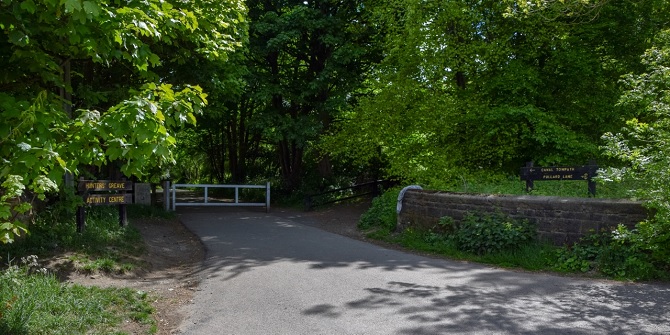As we are not allowed to visit museums these days, you could look at this walks as an open air museum, writes Mark Stevenson.
This one has everything from secret tunnels to a haunted pub.
You need to make your way to the Abbey Inn Pub (1) at the bottom of Pollard Lane.
The Abbey Inn, like most pubs in the area, was used as a morgue when bodies were found in the river or canal and it wasn’t unknown at that time for a body to be pushed further down the river or canal if it would cause a problem.
The Abbey Inn is said to be haunted.

From the Abbey Inn walk down the road over the railway bridge (2) and on your left is a small wood (3). To enter you need to climb over the fence (please read the sign on the gate):

In the 1840’s it was the site of a croft and mill dam.
Today, however, if you take a walk around it you will come across some hidden tunnels and an old air raid shelter.

There is also a memorial to the ‘best flagger in Leeds’ in the woods.

When you come out of the woods walk down to Newlay Bridge (4). The bridge was once a toll bridge and until not so long ago it was a busy road.

The bridge was paid for by John Pollard in 1819.

If you look to the left you can see the old and new railway bridges crossing the River Aire (5).

To the right you will see the weir but you will most likely hear it before you see it.

Walk across the bridge and when you come to Rein Road (6) turn right and walk ahead until you see the river on your left.
You can explore along the river bank and you can see the remains of the old goit which was all connected to the weir at one time dating from around 1690 (7).
Now, retrace your steps and head back towards the Abbey Inn.

Walk slightly on a little from the Abbey Inn and you will see a sign for Hunters Greave (8). (Update: We’ve been asked to point out that Hunters Greave is private land and people are being encouraged not to use the area in the current circumstances, but are welcome to look from the gate.)
Walk down the footpath towards Hunters Greave and you will see some old huts on your left.

The large hut (9) dates from the Great War and is all that remains of a National Ordnance Factory that manufactured shells for the Great War.
You can now either carry on down the footpath to the Kirkstall Train Station or walk back on yourself to Pollard Lane.
Read more on West Leeds’ rich history with the regular Mark’s History columns here.


I am going to do this walk today didn’t know it existed and I’ve lived in the area 20years!!!just shows how a hectic work life has impacted on enjoying our great city of Leeds,learning new things and walks each day thanks.